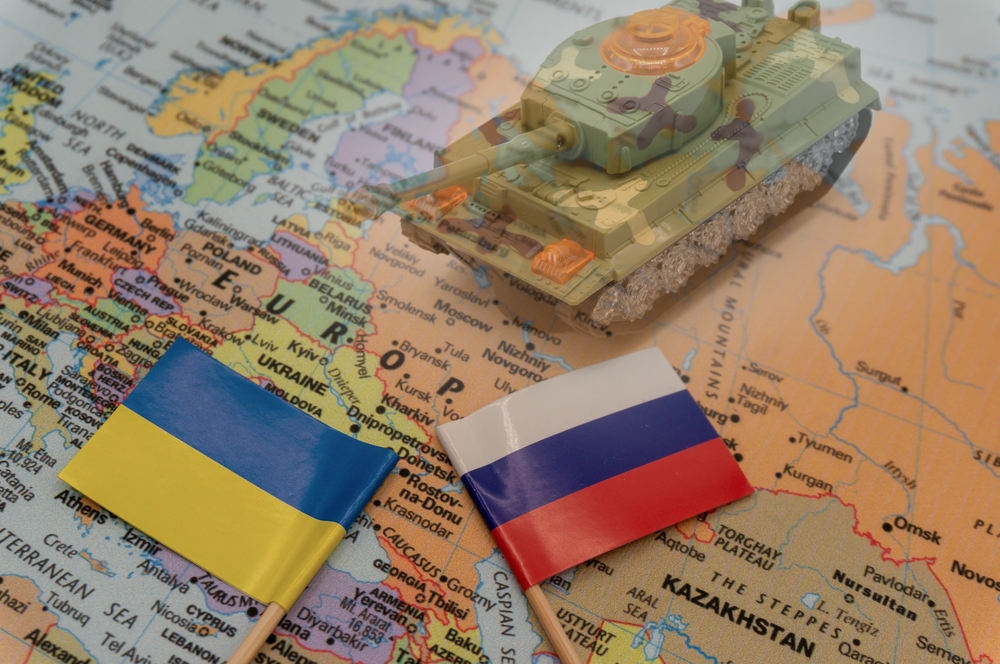After three years of intense fighting since the large-scale invasion by Russia in February 2022, Ukraine faces a devastating scenario that has drastically transformed its territory, population, and global political standing. The conflict has resulted in the loss of vast areas of land, thousands of civilian deaths, a large-scale humanitarian crisis, and uncertainty regarding international support.
Since the beginning of the invasion, Ukraine has lost approximately 11% of its territory to Russian forces, according to analyses by the Institute for the Study of War (ISW). Strategic areas in the eastern and southern regions, including parts of the Donetsk and Luhansk provinces, as well as critical zones around Bakhmut and Severodonetsk, have been occupied by Russian forces. Despite successful counteroffensives that allowed for the retaking of parts of the Kharkiv and Kherson regions, Russian control over areas in the east remains strong.

Considering the lands lost since 2014—including the annexation of Crimea and Russian dominance over parts of the Donbas—Ukraine has already lost about 18% of its total territory to Moscow. The illegal annexation of Crimea in 2014 marked the starting point for the escalation of tensions, leading to the catastrophic events that unfolded in the following years.
The impact of territorial losses goes beyond the lines on maps. The occupied regions include important industrial centers, vital agricultural areas, and infrastructure essential to the Ukrainian economy. The destruction of power plants, railways, and supply networks has further worsened the country’s economic crisis. Additionally, Russian forces have implemented policies of Russification in occupied areas, imposing the use of the Russian language, altering school curricula, and replacing local authorities with pro-Moscow representatives.
The human impact of the war has been profound. According to the UN Human Rights Office, more than 40,000 civilians have been killed or injured since the start of the invasion in 2022. Explosive weapons used in densely populated areas are responsible for most of these deaths. Among the victims, at least 6,203 were adult men, while 669 were children.
In addition to deaths and injuries, millions of Ukrainians have been forced to abandon their homes. It is estimated that more than 6.8 million Ukrainian refugees are living in Europe, with Germany hosting about 1.2 million, Poland sheltering nearly 1 million, and the Czech Republic accommodating around 390,000. Another 1.2 million Ukrainians sought refuge in Russia itself, according to UN data as of June 2024. Internal displacement has also been massive, with entire cities devastated and whole communities disbanded.
The conditions for refugees vary widely. While many have been warmly received in European countries, they face challenges such as language barriers, limited access to the job market, and difficulties in fully integrating into local communities. Refugee children face interruptions in their education, while adults struggle with severe psychological trauma resulting from violence and family separation.
During the first years of the war, Ukraine relied heavily on military and financial support from the West. The United States was the primary funder, allocating about $95 billion in military, humanitarian, and financial aid since 2022. This support has been crucial in strengthening Ukraine’s armed forces and enabling several successful counteroffensives.
However, the future of this support has become uncertain with the presidency of Donald Trump. In his 2024 campaign, Trump strongly criticized the volume of funds sent to Ukraine and suggested a transactional approach to future aid. He proposed that the United States only continue to assist if it had access to Ukraine’s strategic resources, such as rare earth minerals—a proposal quickly rejected by Ukrainian President Volodymyr Zelensky.
Trump’s position raised concerns among Ukraine’s European allies, who fear a potential weakening of the Western coalition supporting the country. The recent meeting between American and Russian officials in Saudi Arabia, without Ukrainian representatives, heightened these concerns. The exclusion of Ukraine from the negotiations was seen as an alarming sign that the U.S. might be willing to seek a deal with Moscow without fully considering Ukrainian interests.
Despite the adversities, Ukraine’s resistance has been marked by resilience and courage. The Ukrainian armed forces, supported by civilian volunteers, have managed to prevent Russian advances on several fronts and carry out significant counteroffensives. The Ukrainian national spirit has been strengthened, with expressions of patriotism throughout the country.
Civil society has also played a crucial role. Local and international organizations have worked tirelessly to provide humanitarian assistance, from food and clothing to psychological support for victims of the conflict. Cities like Lviv and Odessa have become hubs for internally displaced persons, offering shelter and basic resources.
Three years after the start of the large-scale invasion, Ukraine faces a series of complex challenges. The war has resulted in significant territorial losses, a deep humanitarian impact, and an unstable international political scenario. The country’s future now depends not only on its ability to resist militarily but also on maintaining support from its Western allies in an increasingly volatile global political environment.
While diplomatic negotiations take place without its direct participation, Ukraine struggles to protect what remains of its territory and secure a future for millions of its displaced and war-affected citizens. The outcome of this conflict is still uncertain, but the human, territorial, and political costs are already deeply felt throughout the Ukrainian nation.
The reconstruction of Ukraine, once the conflict finally ends, will be a monumental challenge. In addition to restoring destroyed infrastructures and revitalizing the economy, emotional and social scars left by the war will need to be addressed. International support will continue to be essential for this process, both financially and politically, to ensure that Ukraine can rise again as a sovereign and stable nation.

